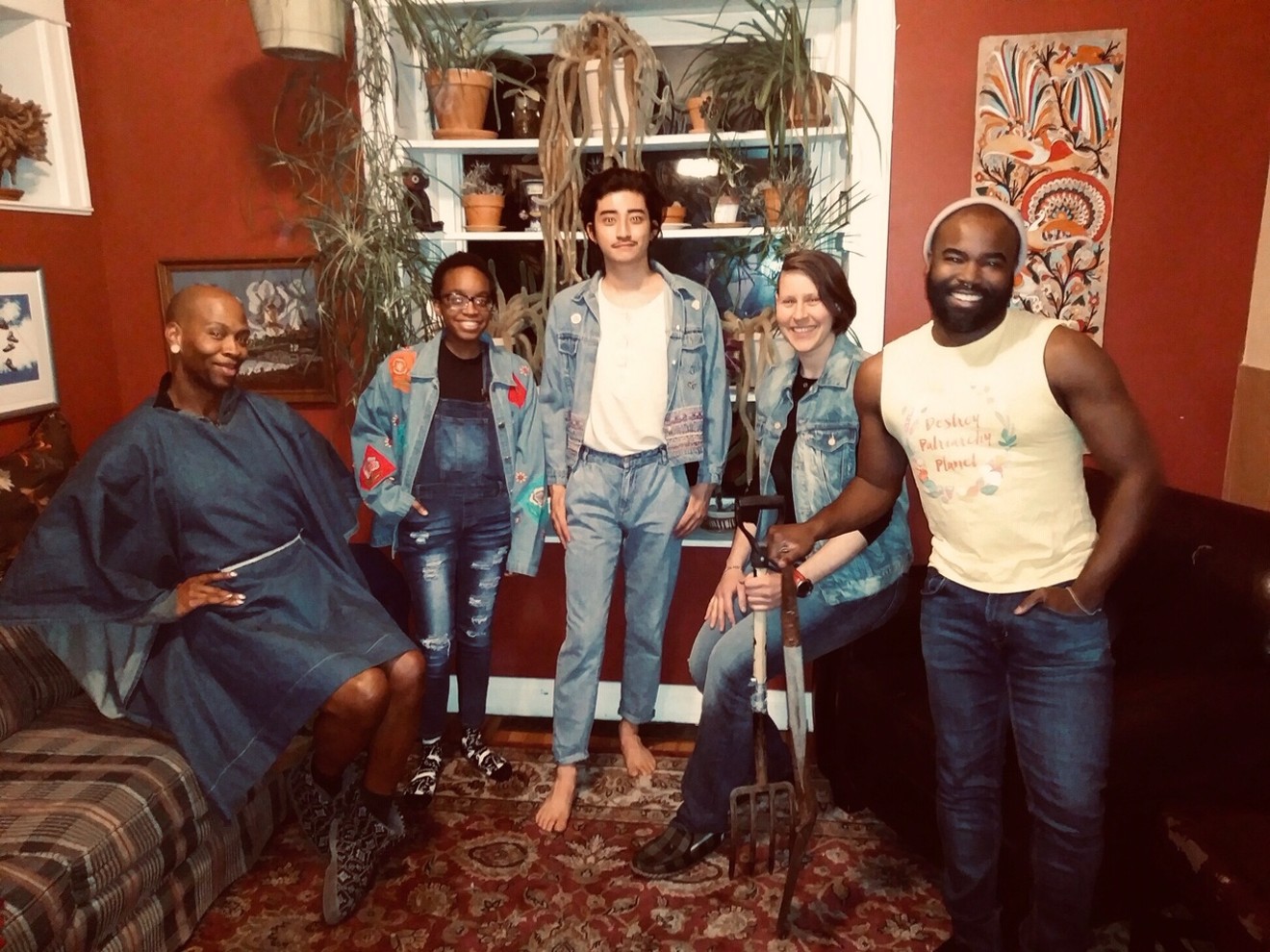Almost exactly thirteen years ago, Mac Liman and four of her friends closed on a home in the Lincoln Park neighborhood.
"We had been living together already for some time as friends and community members. We were kind of sick of how every time we would rent a place and we’d start the garden, and the next year, the lease would not be available to renew," recalls Liman, a 38-year-old bike mechanic. "We had the opportunity to find something more permanent."
In the years since, friends and housemates have come and gone. "I’d say the average number of people in the house has been eight, and the average stay here has been four years," Liman says.
There's often been room for more: The home has nine bedrooms, three kitchens and four bathrooms. "We have plenty of space," Liman notes. "No one here has ever lived in a non-traditional bedroom, even."
During much of their time in the home, Liman and her housemates have been living in violation of the Denver Zoning Code, which only allows two unrelated adults in the same household. Since the Lincoln Park structure is technically a duplex, it could theoretically house up to four unrelated adults under Denver code — but it has just one address, and its residents have never felt the need to get legal. Besides, only four unrelated adults are living there right now.
And soon, the household could be in complete compliance with the law, if Denver City Council approves a massive overhaul to the group-living aspects of the Denver Zoning Code on February 8. The more controversial parts of the proposal deal with establishing new residential-care facilities, such as halfway houses, homeless shelters and sober living homes, but communal households have also come under fire.
The first proposal from Community Planning and Development, released in January 2020 after almost two years of discussion, would have allowed up to eight unrelated adults to live in the same home. CPD later tweaked the proposal and settled on a base number of five, with the possibility for households to increase to up to ten unrelated adults, depending on a home's size.
But a handful of Denver City Council members, as well as the advocacy group Safe and Sound Denver that formed in opposition to the group-living proposal, publicly advocated for a lower number. The final proposal the council will be voting on would allow a total of five unrelated adults in the same household.
Safe and Sound Denver opposes even this lower limit, pointing to the effects that larger households can have on neighborhoods, including increased parking demand. However, the proposal includes a provision capping the maximum number of cars per household at six; currently, there is no maximum number of cars allowed per household in Denver.
Liman argues that the issue of parking issue is overhyped. "Even when we had fourteen people living here, we had two cars. I have never owned a car in my entire life. We share cars," she says.
Although Liman and her housemates have spoken publicly about their communal household, most people in violation of the zoning code simply keep quiet about it, whether they're college kids sharing a house, young adults living together in order to keep costs down, or intentional communities. City inspectors are only called out when there are complaints, and there have been relatively few. The city's 311 line fields around 130 complaints a year about unrelated adults living together, and those usually come from college areas.
"For people who already live with roommates, these changes will make their living situation legal, but zoning codes do not make people who otherwise would not have moved in with roommates suddenly do so," notes a recent fact sheet from CPD. "While our hope is to increase legal options for Denverites who may want roommates in the future, our average household size across the city will likely remain close to what it is today."
The people Liman lives with generally have a "commitment to social justice and anti-racism," she notes, and benefit from the "astronomical" difference in the cost of living in a communal house compared with renting an apartment.
"People move in here and are able to pay off debt, they’re able to create savings, they’re able to leave shitty jobs, they’re able to take on commitments they wouldn’t otherwise, they’re able to send money home to family members. It’s just unbelievable what people have been able to do in a place like this," Liman says.
Their commitment to community extends outside of the house, and they've developed close ties with other residents of the neighborhood. "With our closest neighbors, we’ve shared yard and gardening space. We started keeping chickens, so then our neighbors started keeping chickens," Liman explains. "I’ve been to the funerals of three of my neighbors since I’ve been here."
While she wishes the group-living proposal had stuck with a higher number of adults who could live in the same household, she definitely supports the change.
Concludes Liman: "Let people live the way we are already living."
[
{
"name": "Air - MediumRectangle - Inline Content - Mobile Display Size",
"component": "12017618",
"insertPoint": "2",
"requiredCountToDisplay": "2"
},{
"name": "Editor Picks",
"component": "17242653",
"insertPoint": "4",
"requiredCountToDisplay": "1"
},{
"name": "Inline Links",
"component": "18838239",
"insertPoint": "8th",
"startingPoint": 8,
"requiredCountToDisplay": "7",
"maxInsertions": 25
},{
"name": "Air - MediumRectangle - Combo - Inline Content",
"component": "17261320",
"insertPoint": "8th",
"startingPoint": 8,
"requiredCountToDisplay": "7",
"maxInsertions": 25
},{
"name": "Inline Links",
"component": "18838239",
"insertPoint": "8th",
"startingPoint": 12,
"requiredCountToDisplay": "11",
"maxInsertions": 25
},{
"name": "Air - Leaderboard Tower - Combo - Inline Content",
"component": "17261321",
"insertPoint": "8th",
"startingPoint": 12,
"requiredCountToDisplay": "11",
"maxInsertions": 25
}
]












